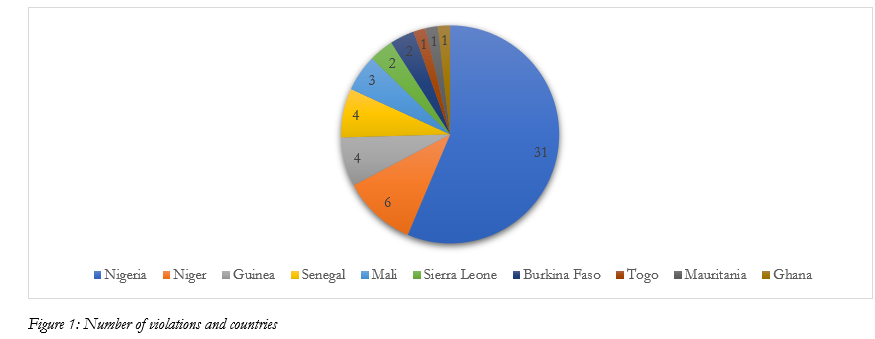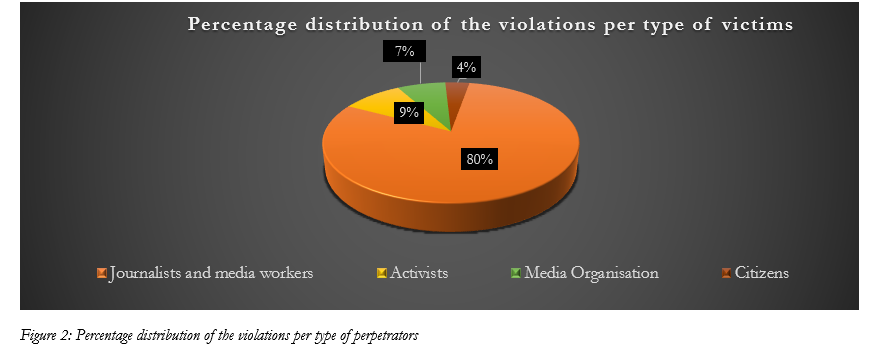A total of 55 incidents of Freedom of Expression (FoE) violations were recorded during the period under review (January-March 2023). The figure is a jaw-dropping 160% increase over that of the previous quarter (October-December 2022) which stood at 21.
Nigeria recorded thirty-one (31) violations, 25 violations more than the second on the list, Niger, which followed with six (6) violations. Guinea and Senegal each recorded four (4) violations. Burkina Faso followed with three (3) violations, while Mali and Sierra Leone each recorded two (2) violations. Togo, Mauritania and Ghana each trailed one (1) violation.

The quarter was marred by series of physical attacks, censorship as well as arrests and detention of journalists and media professionals. At least 40 journalists fell victims to these assaults.
Nigeria led the charge against journalists with 31 FOE violations that mostly occurred during its presidential and gubernatorial elections. A dozen of journalists reported incidents of physical attacks, with most of them resulting in significant equipment losses.
In Niger, authorities arrested and detained several activists on the basis of the country’s 2019 cybercrime law. At least seven citizens and activists were arrested and detained over the past three months on the basis of the law.
The media regulator in Senegal, the Conseil national de Régulation de l’Audiovisuel (CNRA), suspended a media outlet allegedly for broadcasting scenes of violence, hence violating the code of ethics. Meanwhile, its Nigerian counterpart, the National Broadcasting Commission (NBC), slapped a hefty 5 million Naira fine on a media outlet for publishing content that allegedly breached sections of the broadcasting code.
Following the suspension of the international French media RFI in 2022, authorities in Burkina Faso led another similar assault on France 24, another international French broadcaster. The authorities accused the prominent media of abetting the terrorist group al-Qaida in the Islamic Maghreb (AQIM).
In terms of distribution, 80% of the violations targeted journalists and media workers, while activists found themselves in the crosshairs of 9% of the violations. Media organisations were subjected to 7% of the violations, while faced 4%.

The first quarter report also features other important freedom of expression and digital rights developments in the region, including redresses for violations and recommendations to key stakeholders.
Access the full report here.





